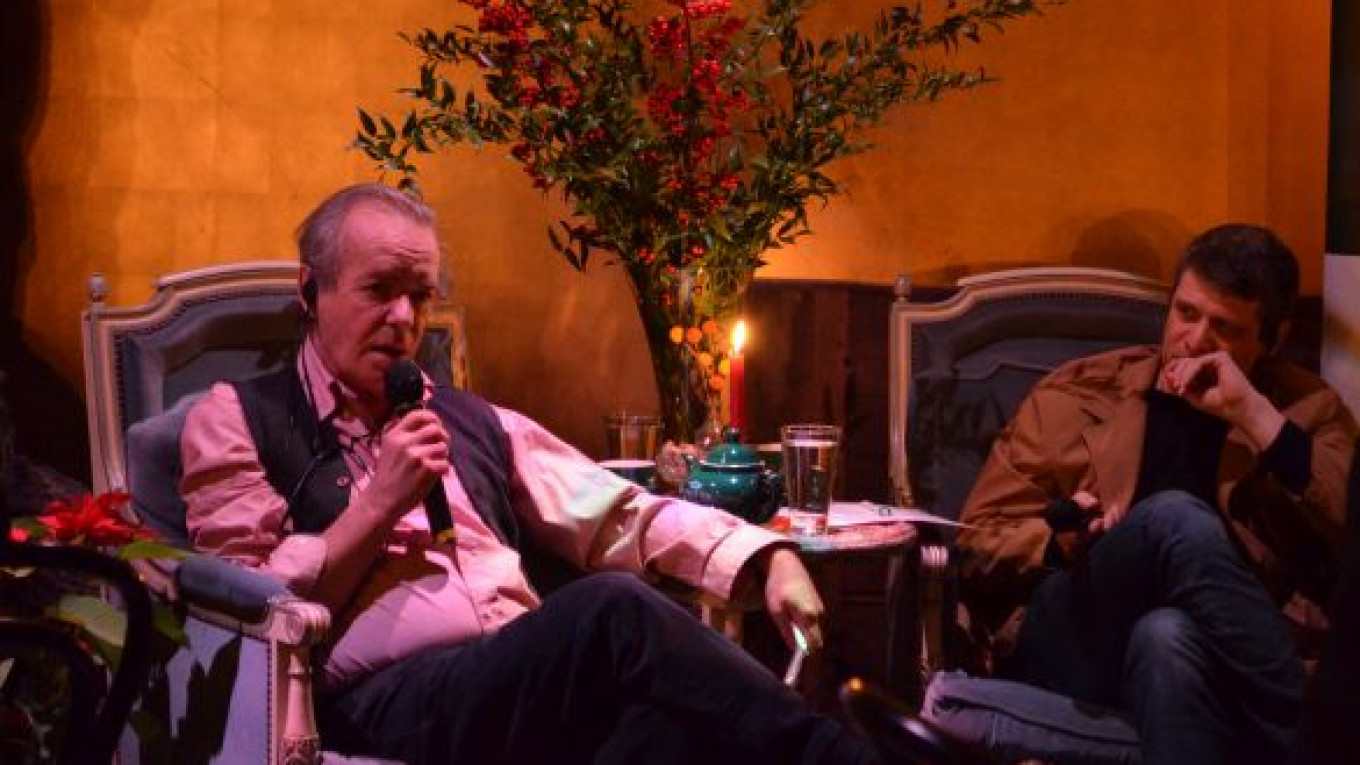"I tend not to read foreign fiction because I don't speak any other language," said award-winning British author Martin Amis at a talk hosted by the British Council on Saturday.
While this may seem an unusual premise upon which to enter Russia for a discussion of literature defining national identity, Amis' reservations stem from how well his own novels — four of which are available in the Russian language — translate, given his intent and focus.
"Russian has a huge vocabulary, like English … I don't play word games — or I don't anymore in my fiction — but I'm very obsessed by the verbal surface, and that, I can't imagine, has survived intact in Russian," he said.
However, his enduring love of Vladimir Nabokov demonstrates that he has delved deeply into Russia's more traditionally loved texts in his literary life, despite having steered clear of post-Soviet texts and never having previously visited the country.
"Many of Nabokov's novels were written in Russian and … translated under his supervision, but not always. And I feel that they're not to be compared … with the novels that were written by him in English," he said.
He professed his evident familiarity with "the cruelty of Russian humor," calling Nabokov "perhaps the cruelest novelist there has ever been … because he understands cruelty and he knows its rhythm."
Both Amis' "Koba the Dread" and "House of Meetings," utilize the context of the gulag as painful stains on Russia's history. "The history of England … is even rather torpid compared to Russian history," he said. However, he acknowledged that the urge to write was a positive thing, stemming from the need to reflect the world around oneself.
Amis considers Gogol "extremely funny," and even Dostoevsky, "essentially a comedian," while quoting acmeist poet Anna Akhmatova — as he has done in previous interviews — repeating her famous line: "It loves blood, the Russian earth," to his audience.
Having participated in the annual International Fair of Non-Fiction Literature at the Central House of Artists on Sunday, Martin Amis was joined by modern British author Ned Beauman and Russian writer Alexander Arkhangelsky at Moscow's Pashkov House on Monday for a further discussion on the topic, backed by the British Council, with the mixture of talents adding some extra nuance and balance to the talk on self identity in literature.
Given Beauman's areas of interest — he cites Pynchon and DeLillo among his influences — it is unsurprising that he "really enjoyed" reading the works of postmodernist Russian sci-fi writer Victor Pelevin and expressed a refreshing desire to pursue reading other samizdat and post-Soviet writers. "I'm really looking forward to reading Sorokin, who I read an interview with recently," Beauman said.
A Message from The Moscow Times:
Dear readers,
We are facing unprecedented challenges. Russia's Prosecutor General's Office has designated The Moscow Times as an "undesirable" organization, criminalizing our work and putting our staff at risk of prosecution. This follows our earlier unjust labeling as a "foreign agent."
These actions are direct attempts to silence independent journalism in Russia. The authorities claim our work "discredits the decisions of the Russian leadership." We see things differently: we strive to provide accurate, unbiased reporting on Russia.
We, the journalists of The Moscow Times, refuse to be silenced. But to continue our work, we need your help.
Your support, no matter how small, makes a world of difference. If you can, please support us monthly starting from just $2. It's quick to set up, and every contribution makes a significant impact.
By supporting The Moscow Times, you're defending open, independent journalism in the face of repression. Thank you for standing with us.
Remind me later.






